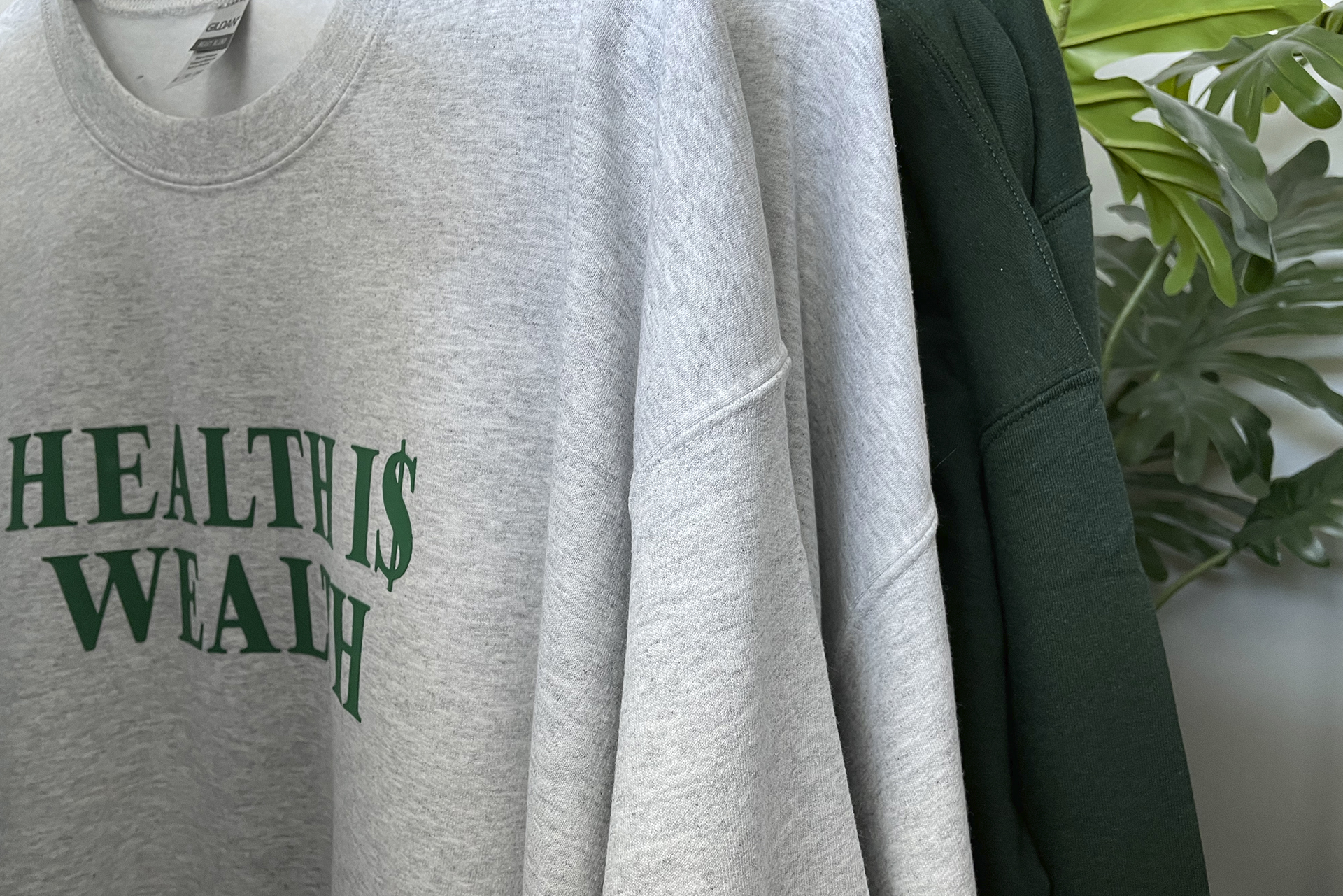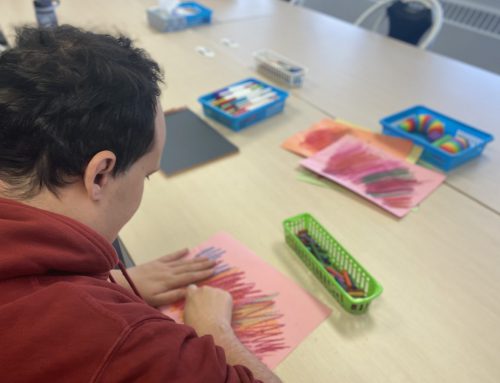BY Bianca Mercuri & Mackenzie Chandler
Nicole Alexakis is a 22-year-old student with a following of over 110,000 on Tik Tok. She has experienced firsthand the extent to which body standards contribute to online success and how it contributes to poor mental health.
“I never had the kind of attention I was getting, and it made me want to look better. I became really hard on myself and developed a constant need to be better than I was the day before,” says Alexakis.
A survey to observe your current social media habits. Media by Bianca Mercuri.
Social media is a tool and a weapon all at once, especially for diet and fitness companies. A study by the Global Wellness Institute reported that the wellness economy represented 5.1 per cent of global economic output in 2020.
Personal Trainer Sahil Patel notes that people can end up spending a lot on fitness.
“Right now, we’re seeing a boom in fitness because fitness is more accessible. People, especially during COVID, were buying equipment online or fitness and meal plans online,” says Patel.
According to a report by NPR, about 45 million Americans go on a diet every year and spend about $33 billion on weight-loss products. When gyms and fitness centers closed due to COVID-19, consumers adopted at-home exercise routines, resulting in a 130 per cent rise in fitness equipment sales.
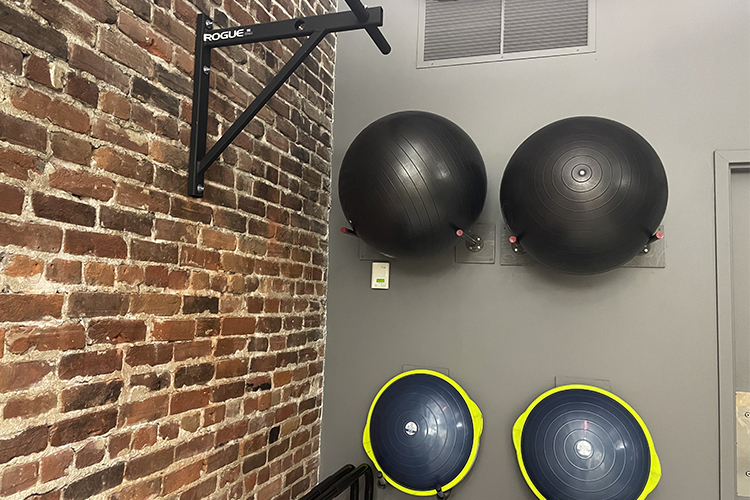
Silofit is a network of private fitness spaces to avoid the crowded public gyms. Photo by Bianca Mercuri.
Fitness can also be a place of comparison and judgment. According to health coach Kayla Pomponio, this became more apparent during the pandemic.
“The biggest problem we have as a community is social media,” she says. “When Tik Tok blew up during COVID, everyone was on their phone. We digest what we see, and consuming that amount of information, seeing bodies all day and showcasing themselves is a huge problem.”
Statistics Canada says that 14 per cent of Canadians aged 15 to 64 report feeling anxious or depressed, frustrated or angry, or envious of the lives of others as a result of social media use.
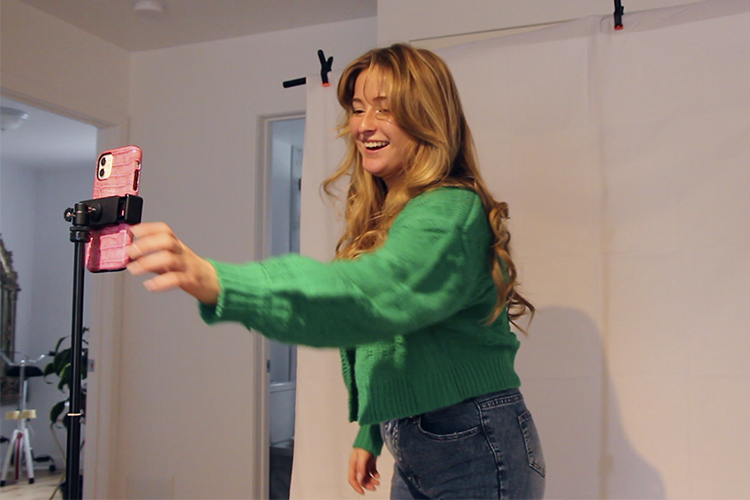
Social Media influencer Jayda Hales in the process of creating content for her Instagram feed. Photo by Mackenzie Chandler.
Social media also facilitated the spread of diet and fitness trends.
“Fitness is so much more accessible now, mostly because of social media,” says personal trainer Patel. “Influencers are sharing their fitness routines, meal plans, and more. The problem is that this creates misinformation. As long as someone looks good, we think they know what they’re talking about but that’s not always the case.”
Emily Zidel, an anti-diet dietician, is adamant that diets don’t work. According to Zidel, 80 to 90 per cent of people who pursue intentional weight loss will regain the weight. Two-thirds will end up heavier than they started.
“The diet industry profits off that knowledge by selling you something that’ll fail so that they can rebrand it and sell you more.”
Pomponio brings this issue back to the pandemic, saying that she saw many influencers online talk about gaining weight throughout COVID-19.
“It made me realize that unless people are going to be seen, they won’t hustle for their health. The reason they gained weight is because they don’t care about their health, they care about their weight because they are going to be photographed.”
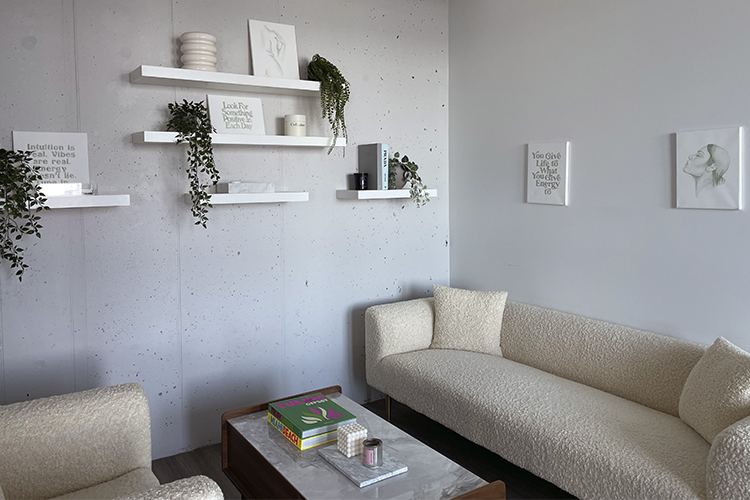
Health and Hormone Coach Kayla Pomponio shares her office space. Her choice of images as well as furniture help to create a safe and comfortable space for her clients to express themselves and their health concerns. Photo by Bianca Mercuri.
Alexia Theopolous, a fitness coach, says that an aesthetic mentality might not be a bad thing.
“Our bodies are aesthetics but that doesn’t mean it has to be superficial,” she says. “Everyone is showing off their bodies, and people forget that this is someone’s full-time job to look like this. They can afford to go to the gym and look like that. They have the money and time to invest in their bodies.”
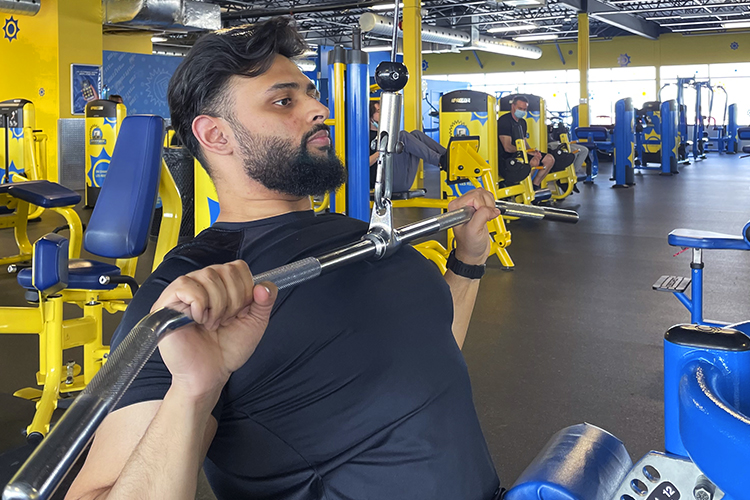
Personal Trainer Sahil Patel is getting in a workout at his place of employment, Buzzfit Gym in DDO. Photo by Bianca Mercuri.
Social media has created an environment where women commonly feel inadequate. According to the Dove Self Esteem Project, only 11 per cent of girls globally feel comfortable calling themselves beautiful, and only four per cent of girls globally actually consider themselves beautiful.
Alexakis shares this thought through a personal experience where she finally understood the disconnect between physical and mental health.
“One night I had gone out and I felt very confident, I was excited and I felt good. It was a great night,” she remembers. “But, the morning after I looked in the mirror and I felt awful. I did a 180. And I realized that nothing had changed from the night before, so I started asking myself how I could switch up so quickly. That’s when I realized that looking good and feeling good can be two completely different things.”
She’s not alone. The UK Mental Health Foundation reports that 22 per cent of adults and 40 per cent of teenagers said images on social media caused them to worry about their body image.
Let’s see what professionals in the fashion industry have to say about the body positivity movement making its way on the runway. Video by Mackenzie Chandler.
Fitness and health experts confirm that the need to compare ourselves to what we see online causes disordered thoughts.
Patel notes that clients bring in photos of celebrities all the time wanting to look just like them.
“Most people set goals in the gym that are unrealistic. This is because of the people they see online,” she says.
Zidel also sees this issue within her own clients.
“There’s dieting, disordered eating, and clinical eating disorders. It’s easy to spiral all the way down,” she says, “If you ever wonder if you have a disordered relationship, ask yourself: What is the intention behind doing this?”
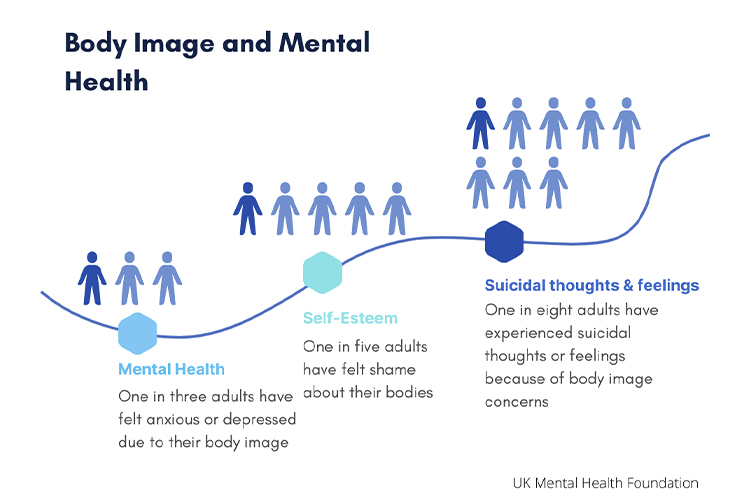
UK Mental Health Foundation’s alarming statistics on the prevalence of negative and dangerous emotions relating to body image. Graphic by Bianca Mercury.
Education is the missing link in all of this.
“We need to start practicing sharing the right information rather than just information as a whole,” says Patel.
It is our responsibility to ourselves to put our health above anything, including our follower count.
